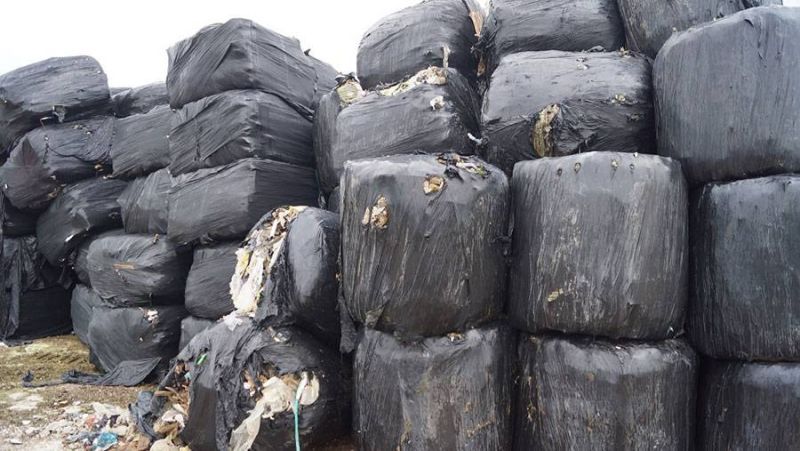
Farmers and landowners in the South East are being urged to be extra vigilant after investigations reveal that ‘baled waste crime’ is on the increase.
The Environment Agency is warning of large scale incidents which have dumped baled waste on privately-owned sites across Kent, Surrey, Sussex and Hampshire since 2017.
The waste is often plastic, builders, commercial or household rubbish that cannot be recycled and which has no monetary value.
It is then compressed into a block or ‘bale’ and concealed by plastic strapping.
The economic impact of waste crime in England is an estimated £604m per annum.
Because of the economic impact of the crime, landowners are being urged to manage their waste responsibly to prevent it from getting into criminal hands in the first place.
Most of the sites have been cleared at great expense to the landowners, with clean-up costs in excess of £200,000 a site.
Tom Ormesher, Land Use Adviser for the NFU, said the union is keen to raise awareness of the issue among farmers.
“By following tips from the Environment Agency, farmers can take some steps to protect themselves from these scammers and avoid being landed with a huge waste problem and a bill that could run to thousands of pounds,” he said.
EA's advice for farmers and landowners
• Carry out rigorous checks on prospective new tenants. Land and property owners have a responsibility to ensure anyone leasing their land complies with regulations, so it is essential that you establish how and for what they are going to use the land.
• Check any empty land and property regularly and make sure it is secure.
• It is illegal to store waste on your land without the required permits. You may be committing an offence by allowing waste to be stored on your land or property without the relevant permissions and you could be liable to prosecution and the cost of removing the waste.
• Landlords should check before signing a contract that the contract complies with regulations. You can view whether a potential tenant holds the correct permit to carry out waste operations.
• The offer of payment to temporarily store waste is a scam, the waste will likely never be collected.
• Be vigilant and report any unusual behaviour. If you are suspicious of prospective tenants please contact us for more information and advice.
• If you are approached to store baled waste, even on a short term basis, refuse the material and call the Environment Agency on 0800 80 70 60 or Crimestoppers anonymously on 0800 555 111.
